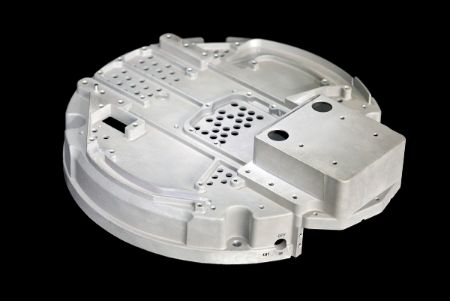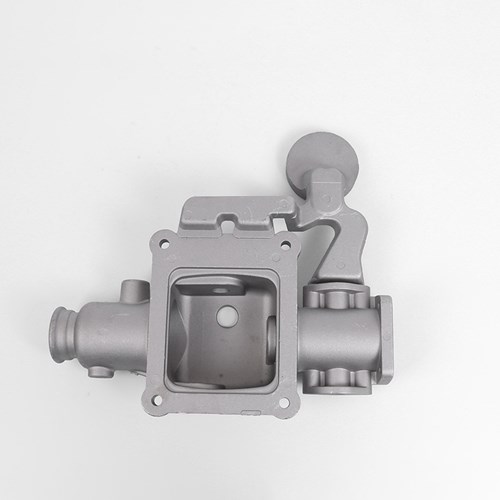Best Practices to Reduce Defects in Aluminum Casting Company
Wiki Article
Recognizing Aluminum Casting: A Comprehensive Overview to Its Benefits and Applications
Aluminum casting is a process that changes molten aluminum into solid forms with numerous methods. This approach offers noteworthy advantages, such as lightweight toughness and rust resistance. It discovers applications in various markets, reflecting its versatility. However, comprehending the complexities of aluminum casting and its ideal methods can greatly affect the top quality of the end product. Discovering these components exposes real possibility of aluminum casting in modern-day manufacturing.The Fundamentals of Aluminum Casting
Aluminum casting is a production process that transforms liquified aluminum into solid things through numerous strategies. This procedure begins with home heating aluminum up until it reaches its melting point, allowing it to flow into molds. There are a number of methods of aluminum casting, consisting of sand casting, pass away casting, and financial investment casting, each ideal for different applications based upon layout intricacy and manufacturing quantity.In sand casting, molds are formed making use of sand, providing flexibility for detailed forms. Die casting involves forcing liquified aluminum right into a steel mold under high stress, causing repeatable and precise components. Financial investment casting, on the various other hand, uses a wax pattern that is covered with ceramic to create comprehensive components.
After the aluminum solidifies and cools down, the molds are gotten rid of, exposing the ended up items. This casting process is important in different sectors, including automotive, aerospace, and customer products, allowing the development of durable and lightweight components.
Benefits of Aluminum Casting
One of the crucial benefits of aluminum casting hinges on its capability to produce light-weight yet solid components. This unique combination makes aluminum an ideal option for numerous sectors, including auto, aerospace, and durable goods. The fundamental corrosion resistance of aluminum likewise improves the sturdiness of the cast parts, lengthening their lifespan and decreasing the demand for maintenance.
Furthermore, aluminum casting enables detailed designs and complex geometries, which can bring about much more reliable and aesthetically pleasing products. The material's outstanding thermal and electrical conductivity further increases its applications, especially in electronics and heat exchangers.
Moreover, aluminum recycling is very efficient, contributing to ecological sustainability and reducing manufacturing prices. Overall, the advantages of aluminum casting setting it as a practical and versatile remedy for producers seeking to maximize efficiency while lessening weight and resource use.
Usual Techniques of Aluminum Casting
While numerous methods exist for aluminum casting, each technique provides distinctive advantages tailored to particular applications. One of the most typical methods include sand casting, pass away casting, and investment casting.Sand casting, recognized for its convenience, makes use of sand molds to create complicated forms and is ideal click here for both small and large manufacturing runs. Pass away casting, on the various other hand, employs high-pressure shot of molten aluminum into steel molds, causing precise measurements and smooth surface areas, making it optimal for mass production.
Investment casting, often described as lost-wax casting, includes developing a wax pattern covered with a ceramic covering. Precision aluminum casting. When the wax is thawed away, molten aluminum is put into the tooth cavity, producing intricate layouts and superb surface area coatings
Each of these methods plays a necessary role in the aluminum casting landscape, providing details advantages that satisfy varying manufacturing demands and production ranges.
Applications Throughout Industries
The adaptability of aluminum casting approaches enables a large range of applications across various markets. In the automotive industry, lightweight aluminum elements improve fuel performance and performance, adding to the expanding need for electric lorries. Aerospace industries utilize aluminum spreadings for their strength-to-weight proportion, making certain security and durability in airplane production.The construction sector benefits from aluminum casting with building components and structural components that resist corrosion and require marginal upkeep. Furthermore, consumer electronics producers utilize aluminum castings for real estates and frameworks, balancing looks with performance.
In the marine sector, aluminum spreadings are preferred for boats and aquatic equipment because of their resistance to deep sea rust. Furthermore, the clinical area utilizes aluminum castings in surgical tools and devices, ensuring precision and integrity. Generally, aluminum casting's adaptability enables it to satisfy the diverse demands of multiple sectors, making it an important production procedure.
Ideal Practices for Successful Aluminum Casting
Successful aluminum casting counts on a combination of mindful prep work, exact implementation, and comprehensive quality control. Picking high-grade aluminum alloys is necessary, as they directly affect the casting's residential properties and efficiency. Correct mold style is important, assuring that it suits thermal contraction and lessens flaws.Throughout the melting process, staying clear of and maintaining the right temperature level contamination are essential to achieving an uniform alloy. Additionally, using effective pouring strategies can boost the filling of molds, decreasing the likelihood of air pockets or inclusions.
Post-casting, executing extensive assessment techniques, such as visual evaluations and non-destructive screening, ensures that issues are recognized early. Employing strenuous top quality control actions throughout the process aids preserve consistency and reliability in the last items. By adhering to these ideal methods, producers can considerably improve the success and efficiency of their aluminum casting operations.
Frequently Asked Questions
What Precaution Should Be Taken Throughout Aluminum Casting?

Exactly How Can Issues in Aluminum Castings Be Minimized?
Defects in aluminum spreadings can be decreased via cautious mold and mildew design, appropriate temperature control, guaranteeing clean metal, making use of proper pouring methods, and conducting thorough assessments to identify and address concerns before finalizing the casting procedure.
What Is the Ecological Influence of Aluminum Casting?
The environmental influence of aluminum casting consists of energy-intensive procedures, greenhouse gas exhausts, and resource removal worries. Advancements in recycling and lasting techniques can minimize these effects, promoting a more environmentally friendly technique to aluminum production.Can Aluminum Casting Be Reused?
Yes, aluminum casting can be recycled effectively. The reusing process needs considerably much less power compared to primary aluminum manufacturing, making it an ecologically pleasant choice that adds to resource preservation and reduced carbon emissions.What Are the Prices Related To Aluminum Casting Processes?
Costs linked with aluminum casting processes include material costs, labor, equipment upkeep, power usage, and mold fabrication. These elements can differ considerably based upon manufacturing range, intricacy of layouts, and certain production techniques utilized.Aluminum casting is a procedure that changes molten aluminum into solid forms with various strategies. Aluminum casting is a production procedure that changes liquified aluminum into solid items through numerous methods. While various techniques exist for aluminum casting, each method offers unique benefits tailored to particular applications. The environmental effect of aluminum casting includes energy-intensive procedures, greenhouse gas discharges, and source extraction issues. Expenses linked with aluminum casting processes include material costs, labor, devices upkeep, energy intake, and mold and mildew fabrication.
Report this wiki page